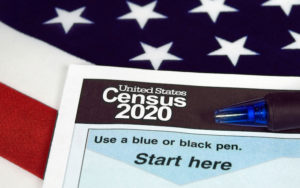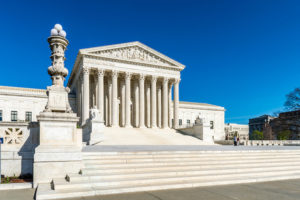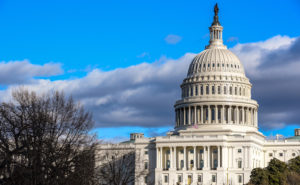Regulating Safety After Merck v. Albrecht
In Merck v. Albrecht, the issue of federal preemption has crossed over the typical conservative and liberal divide.
Fixing Antitrust’s Indirect Purchaser Rule
A recent Supreme Court case allows end users to sue for antitrust violations.
Endangered Deference
The Supreme Court’s recent Weyerhaeuser decision will add to the administrative costs of protecting endangered species.
The Supreme Court Holds the Line on Truth over Pretext
The unprecedented deference conferred by Department of Commerce v. New York sets the tone for cases to come.
The Sound of Silence
A three-way split in Virginia Uranium v. Warren presents conflicting views of preemption.
A Missed Opportunity in Securities Fraud Enforcement
The Supreme Court failed to clarify a key aspect of fraud claims in Lorenzo v. SEC.
Deference After Kisor
A recent Supreme Court decision could reshape judicial deference of agency actions.
A Turning Point in the Deference Wars
The Supreme Court preserved agency deference in Kisor v. Wilkie.
Gundy, Nondelegation, and Never-Ending Hope
The intelligible principle standard lives to see another day—but for how long remains unclear.
What Does Risk-Based Regulation Mean?
Risk-based regulation requires regulators to choose which decision-making principles to apply.
The Search for Sound Vocational Evidence in Disability Adjudication
Expert calls for an overhaul of the existing evidentiary framework for Social Security disability cases.
Considering Cumulative Regulatory Costs in Economic Analysis
The latest Economic Report of the President highlights the importance of studying cumulative regulatory costs.












